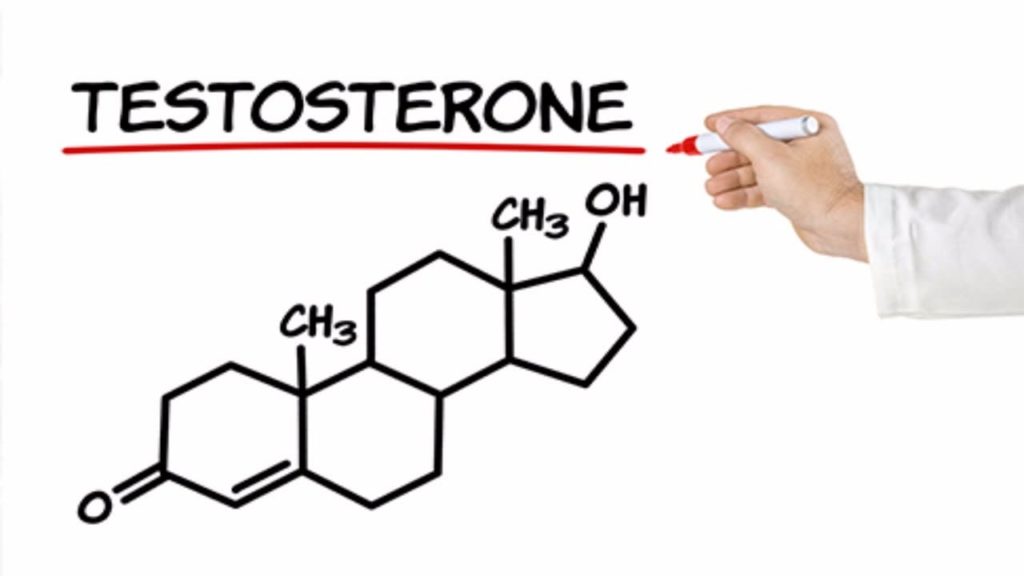Testosterone is the hormone that gives men their manliness. It’s responsible for thickening the voice, increasing muscle mass, and stimulating sperm production. Low testosterone levels can cause a host of problems, ranging from low sex drive to depression. If you suspect your testosterone levels are low, there are a few ways to tell.
Importance of testosterone?
Testosterone is the primary male sex hormone and anabolic steroid. In men, testosterone plays a key role in the development of male reproductive tissues such as testes and prostate, as well as promoting secondary sexual characteristics such as increased muscle and bone mass, and the growth of body hair.
It is also important for health and well-being, and can contribute to the prevention of osteoporosis and heart disease. It also has a role in sexual function and libido. Production of testosterone declines with age, resulting in some older men experiencing low levels of testosterone.
Testosterone levels peak during adolescence and early adulthood. After age 30, it begins to decline. This can cause a range of symptoms, including reduced muscle mass and strength, decreased bone density, low energy levels, mood changes, and reduced libido. Testosterone replacement therapy can help treat these symptoms.
Low T Symptoms?
If you have any concerns about your testosterone levels, it is important to speak with a doctor. However, there are some signs that may indicate that your testosterone levels are low.
Low libido
One of the most common signs of low testosterone levels is a decrease in libido. If you used to have a healthy sex drive but now find yourself less interested in sex, it could be a sign that your testosterone levels are low.
Erectile dysfunction
Another common sign of Low T levels is erectile dysfunction. If you’re having trouble getting or maintaining an erection, it could be a sign that your testosterone levels are low.
Fatigue
If you’re feeling more tired than usual, it could be a sign of low testosterone levels. Low testosterone levels can cause fatigue and low energy levels.
Depression
Low testosterone levels can also cause depression. If you’re feeling down or depressed, it could be a sign that your serum testosterone levels are low.
Irritability
Low T can also cause irritability. If you find yourself getting angry or irritable more easily than usual, it could be a sign that your testosterone levels are low.
If you’re experiencing any of these signs, it’s important to see your GP. Low T levels can be a sign of a serious health condition, so it’s important to get checked out by a doctor if you think you might have low testosterone.

How is testosterone level tested?
A blood test is the only way to know if you have low testosterone. Doctors test for Total Testosterone, Free Testosterone, and Bioavailable Testosterone. The ideal time to get your testosterone levels checked is between 8 and 9 am. This is because testosterone levels fluctuate throughout the day, and are usually highest in the morning. fasting for 12 hours prior to your blood draw will ensure accurate results.
Causes of low testosterone
Serum testosterone is regulated by the hypothalamus and pituitary gland in the brain. The gonads (testes in men, ovaries in women) are the primary source of test in men, while the adrenal glands are the main source of testosterone in women.
Normally T levels can be affected by a number of factors, including age, illness, injury, and medications.
- Age: Testosterone levels peak in early adulthood and decline with age.
- Illness: Certain diseases and conditions can lead to Low T levels. These include tumors of the pituitary gland or testicles, HIV/AIDS, and chronic illnesses such as kidney disease or liver disease.
- Injury: Testicular injury or surgery, including orchiectomy (surgical removal of one or both testicles), can cause low testosterone levels.
- Chemotherapy: Chemotherapy drugs used to treat cancer can cause Low T.
- Hormone disorders: Certain disorders of the endocrine system can lead to Low T levels. These include hypogonadism (a condition in which the body does not produce enough testosterone) and Klinefelter syndrome (a genetic disorder that affects males and causes them to have an extra X chromosome).
How to treat Low T
Testosterone hormone replacement therapy is a safe and effective treatment for low testosterone levels. This therapy can help to improve a man’s quality of life by increasing his energy level, sex drive, and muscle mass. Testosterone hormone replacement therapy can also help to reduce the risk of osteoporosis and cardiovascular disease. There are fewer side effects associated with this therapy than with other treatments for low testosterone levels, making it an ideal treatment option for many men.
Conclusion:
If you have any of the following symptoms, you may have low testosterone levels: fatigue, depression, irritability, decreased libido, erectile dysfunction, or decline in muscle mass. If you think you may have low testosterone levels, make an appointment with your doctor to get tested.
